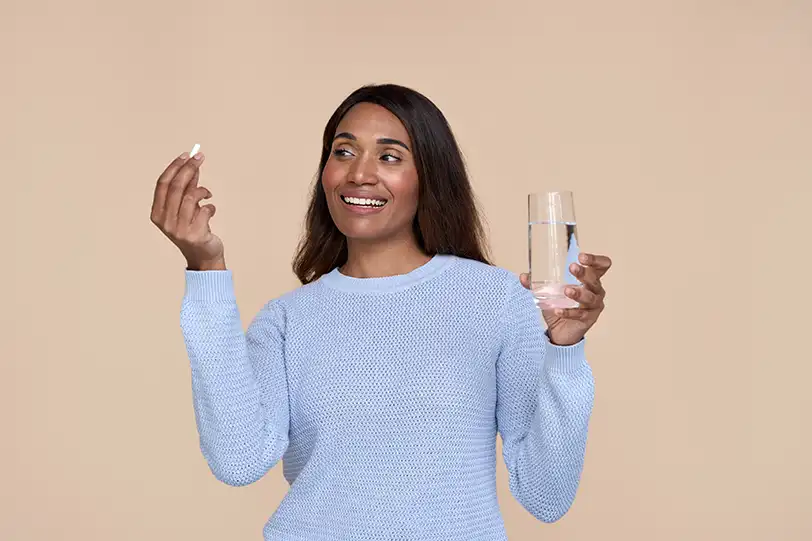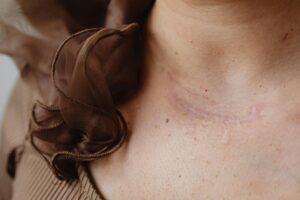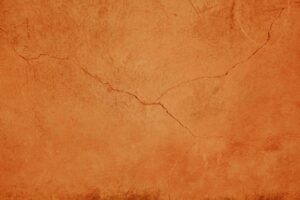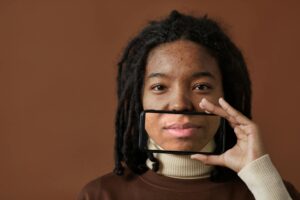When Breakouts Start on the Scalp
Scalp acne can be painful, itchy, and hard to notice until it becomes uncomfortable. It often hides under the hairline or near the back of the head and can lead to redness, irritation, and even hair tenderness.
Many people confuse scalp acne with dandruff or irritation, but true acne here forms when hair follicles become clogged. The good news is that it’s treatable once you understand the triggers and learn how to keep your scalp balanced.
What Is Scalp Acne
Scalp acne occurs when hair follicles on the scalp get blocked by oil, dead skin cells, or product buildup. This blockage traps bacteria, leading to inflammation and bumps similar to facial acne.
It can appear as small whiteheads, tender red bumps, or even cyst-like pimples. The most common areas include the hairline, crown, and back of the head, where oil and sweat collect more easily.
What Causes Scalp Acne
Several overlapping factors can trigger scalp acne.
-
Excess oil production: Overactive sebaceous glands clog hair follicles.
-
Product buildup: Heavy conditioners, oils, or styling creams block pores and trap bacteria.
-
Infrequent washing: Sweat and residue stay on the scalp, leading to clogged follicles.
-
Overwashing: Stripping the scalp too often can trigger oil overproduction.
-
Tight hats or helmets: Heat and friction worsen irritation and trap moisture.
-
Hormones or stress: Increased androgen levels stimulate oil production.
Scalp Acne vs. Dandruff vs. Folliculitis
These conditions can look similar, but they’re not the same.
-
Scalp acne: Clogged follicles with inflamed bumps or pustules that can be painful.
-
Folliculitis: Infection of hair follicles that feels itchy or burning.
-
Dandruff: White or yellow flakes caused by an imbalance of the scalp’s microbiome.
If you’re unsure, look at the symptoms. Dandruff itches but doesn’t hurt. Acne feels tender and often forms bumps you can feel when running your fingers through your hair.
How to Treat Scalp Acne
Treating scalp acne means balancing cleansing, exfoliation, and gentle care.
1. Use a clarifying shampoo
Clarifying shampoos remove oil, product residue, and hard water buildup. Use once a week to reset your scalp without drying it out.
2. Try salicylic acid shampoo
Salicylic acid exfoliates the scalp and clears dead skin that clogs follicles. It’s ideal for oily or acne-prone scalps.
3. Use benzoyl peroxide carefully
Benzoyl peroxide helps kill acne-causing bacteria but can bleach fabrics or hair. Apply it to the scalp, leave for a few minutes, and rinse well.
4. Explore natural options
Tea tree oil or zinc pyrithione shampoos reduce bacteria and inflammation. They can help if your scalp acne is mild or triggered by yeast.
5. Avoid heavy conditioners on roots
Apply conditioner only to the mid-lengths and ends of hair. Leaving thick formulas on the scalp can clog pores.
Haircare and Lifestyle Tips
-
Wash your hair after sweating.
-
Avoid tight hats, helmets, or hairstyles that trap heat.
-
Clean hairbrushes and pillowcases weekly.
-
Limit styling products with wax, silicone, or oil.
-
Keep your diet balanced and reduce sugar or whey protein intake.
Simple consistency often makes the biggest difference.
When Scalp Acne Might Be Hormonal
If breakouts appear along the hairline or neck and persist despite good hygiene, hormones may be influencing oil production.
Stress and hormonal changes can make sebaceous glands more active. In those cases, dermatologists may recommend topical retinoids, oral antibiotics, or hormonal treatments.
Prevention Tips
-
Alternate between gentle and clarifying shampoos.
-
Avoid skipping washes after workouts.
-
Choose non-comedogenic leave-in products.
-
Rinse thoroughly after shampooing to remove all residue.
-
Protect your scalp from sun exposure, especially after exfoliating products.
FAQs About Scalp Acne
Can shampoo cause scalp acne?
Yes. Heavy or silicone-based shampoos can leave residue that clogs follicles. Choose lightweight, clarifying, or medicated formulas instead.
Can scalp acne cause hair loss?
Severe or inflamed acne can weaken hair follicles temporarily, but it rarely causes permanent hair loss. Treating the inflammation early helps prevent damage.
Is scalp acne contagious?
No. It’s not contagious, but shared items like hats, towels, or brushes can transfer bacteria that worsen breakouts.
Can I use facial acne treatments on my scalp?
Some ingredients overlap, like salicylic acid or benzoyl peroxide, but concentrations differ. Always start with scalp-specific products to avoid irritation.
Does diet affect scalp acne?
Yes. High-glycemic foods and dairy can trigger oil production, which may worsen scalp acne in some people.
How long does scalp acne take to heal?
Mild cases clear within a few weeks of proper care. Consistent cleansing and avoiding buildup are key to keeping it away.





